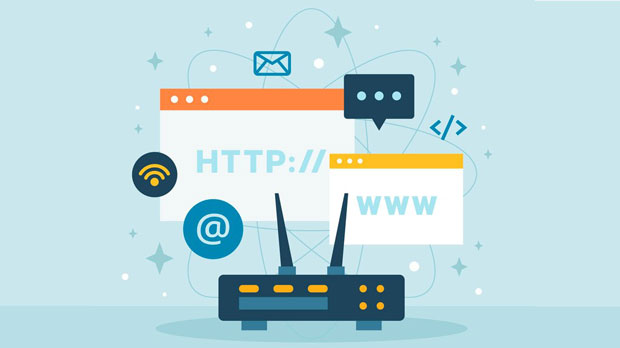In the era of globalization and the internet, seamless access to content across borders is more crucial than ever. Proxies, especially sock s5 proxies, are widely used to bypass geographical restrictions and protect user privacy. Two prominent names in the proxy industry are PYPROXY and Blockaway Proxy, both offering SOCKS5 services for cross-border access. However, these services differ in several key areas such as performance, security, and ease of use. This article delves into a detailed comparison of Pyproxy vs Blockaway Proxy, examining how their SOCKS5 proxies perform in real-world cross-border scenarios. Understanding SOCKS5 ProxiesSOCKS5 proxies are widely regarded as one of the most versatile types of proxies. Unlike traditional HTTP proxies, which work at the application layer, SOCKS5 operates at a lower layer, offering broader compatibility. This means SOCKS5 proxies can handle a wide range of internet traffic, from web browsing to peer-to-peer file sharing, without being restricted by specific protocols. For cross-border access, SOCKS5 proxies are preferred because they allow users to circumvent geographic restrictions, access blocked content, and maintain a higher level of anonymity.Performance: Pyproxy vs Blockaway ProxyWhen evaluating the performance of Pyproxy and Blockaway Proxy in the context of cross-border access, several factors come into play: speed, latency, and reliability.1. Speed: Pyproxy has established itself as a provider with fast, stable connections across multiple regions. Users report relatively consistent performance, especially in regions with high demand for proxy services. Blockaway Proxy, on the other hand, also offers competitive speeds but tends to show more variation depending on the specific geographic location and server load. For users who prioritize speed, especially when accessing high-bandwidth content like streaming services, Pyproxy might be the more reliable choice.2. Latency: One of the main challenges for cross-border access is high latency, which can result in delays and a frustrating user experience. Pyproxy generally offers low-latency connections, making it suitable for activities such as online gaming and video conferencing. Blockaway Proxy, while performing well in most cases, sometimes experiences slightly higher latency due to network congestion, particularly when accessed from remote or less-served regions.3. Reliability: Reliability is a crucial factor for users who need consistent access to content without interruptions. Both services offer relatively stable connections, but Blockaway Proxy has been reported to experience occasional downtime, particularly during peak hours. Pyproxy, in comparison, tends to provide more consistent uptime, which is especially important for businesses and individuals relying on uninterrupted cross-border internet access.Security Features: A Critical ComparisonIn terms of security, both Pyproxy and Blockaway Proxy provide a socks5 proxy service designed to offer users a secure browsing experience, but their offerings differ slightly in terms of additional security features.1. Encryption: Pyproxy is known for its strong encryption protocols, ensuring that user data is securely transmitted across networks. This is particularly important for users concerned with protecting their personal information or engaging in sensitive transactions. Blockaway Proxy also uses robust encryption, but the level of encryption can vary depending on the specific server or plan selected.2. Anonymity: Anonymity is one of the primary reasons users turn to proxies in the first place. Pyproxy is generally considered to offer better anonymity due to its strict no-logs policy and advanced obfuscation techniques. Blockaway Proxy, while providing a solid level of privacy, has faced scrutiny in the past regarding the extent to which it logs user activity. For users whose primary concern is privacy, Pyproxy may be the safer choice.3. DNS Leak Protection: Both services offer DNS leak protection, but Pyproxy has been praised for its superior DNS leak prevention mechanisms. This is important for users who are serious about maintaining anonymity when accessing geo-restricted content from different countries.Ease of Use and User InterfaceFor those new to proxies, ease of use is an essential factor. Both Pyproxy and Blockaway Proxy aim to make their services accessible, but there are some differences in how they present their platforms.1. User Interface: Pyproxy offers a more streamlined and user-friendly interface, making it easier for users to configure and start using the proxy. The setup process is straightforward, with clear instructions available for various operating systems and devices. Blockaway Proxy, while also providing a functional interface, may appear a bit more complicated to first-time users, especially those unfamiliar with proxy configuration.2. Customer Support: Both services offer support, but Pyproxy is known for its more responsive customer service. Whether through live chat or email, users often report quicker resolution times with Pyproxy, which is an essential feature for users who may encounter issues during setup or while using the proxy. Blockaway Proxy’s customer service, while generally helpful, is sometimes slower in addressing technical concerns.Cost-EffectivenessPrice is often a deciding factor when choosing between services, and both Pyproxy and Blockaway Proxy offer competitive pricing models for SOCKS5 proxy services. 1. Pyproxy Pricing: Pyproxy tends to offer more flexible pricing plans, with options that cater to both casual users and businesses. While its pricing might be slightly higher than Blockaway Proxy, the additional cost is justified by its reliability, speed, and security features. 2. Blockaway Proxy Pricing: Blockaway Proxy generally offers more affordable pricing options, which can be attractive for users looking for a budget-friendly solution. However, the lower price point may come with compromises in speed and reliability, particularly during peak usage times. Which Proxy Should You Choose?Ultimately, the choice between Pyproxy and Blockaway Proxy depends on the specific needs of the user. For those seeking a fast, reliable, and secure SOCKS5 proxy experience for cross-border access, Pyproxy stands out as the more robust option. It excels in speed, security, and overall performance, making it ideal for users who require consistency and a high level of anonymity.On the other hand, if you are looking for a more affordable proxy service with decent performance, Blockaway Proxy may be a good choice, especially if you are willing to tolerate occasional latency issues and higher downtime during peak hours.In conclusion, both Pyproxy and Blockaway Proxy offer solid SOCKS5 services, but users should carefully evaluate their priorities—whether it's speed, security, ease of use, or cost—before making a decision.
Sep 03, 2025



































































